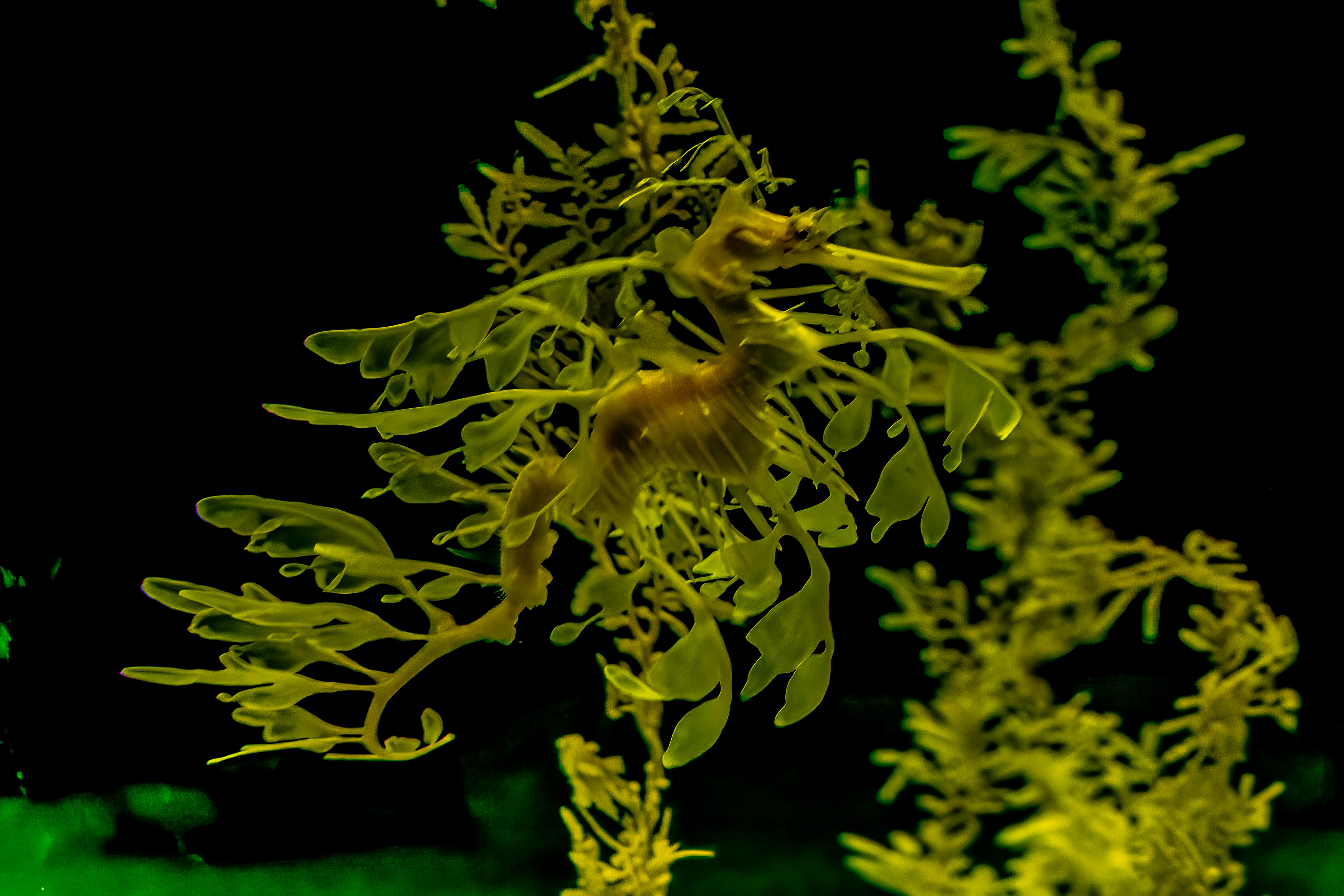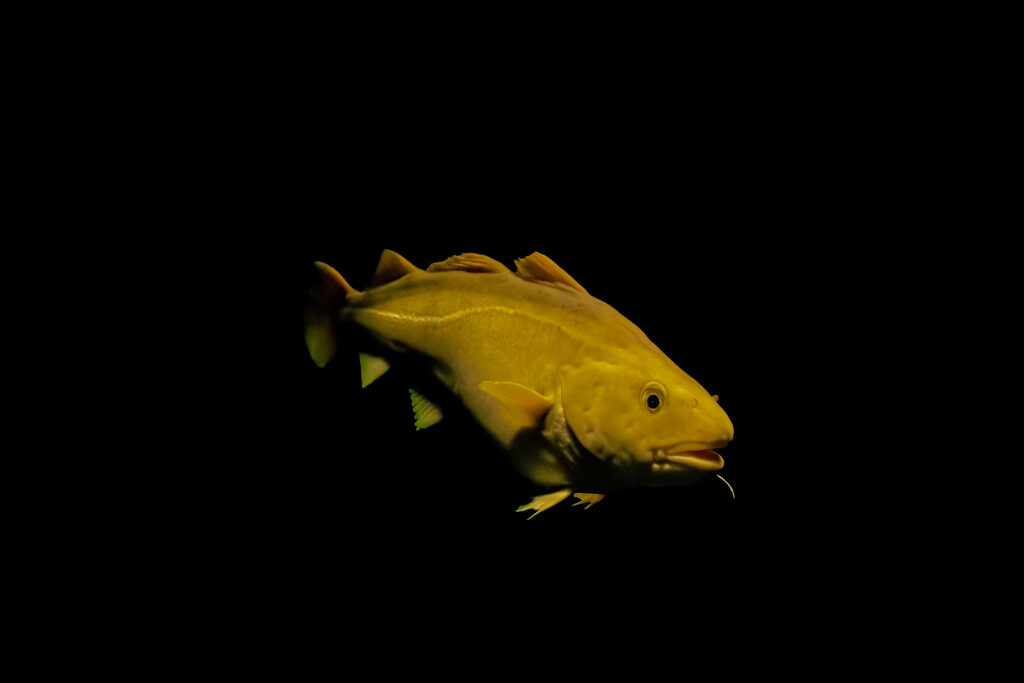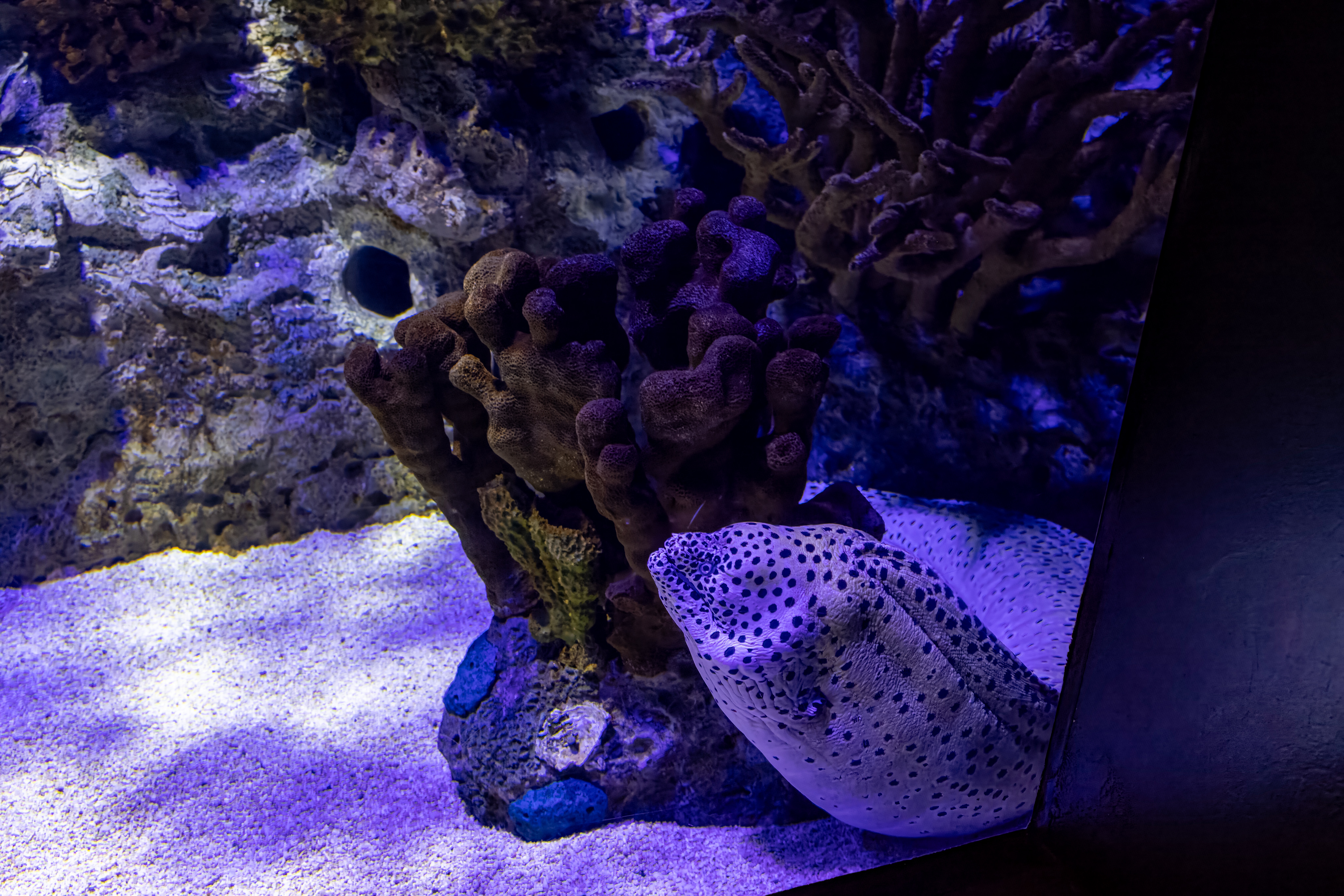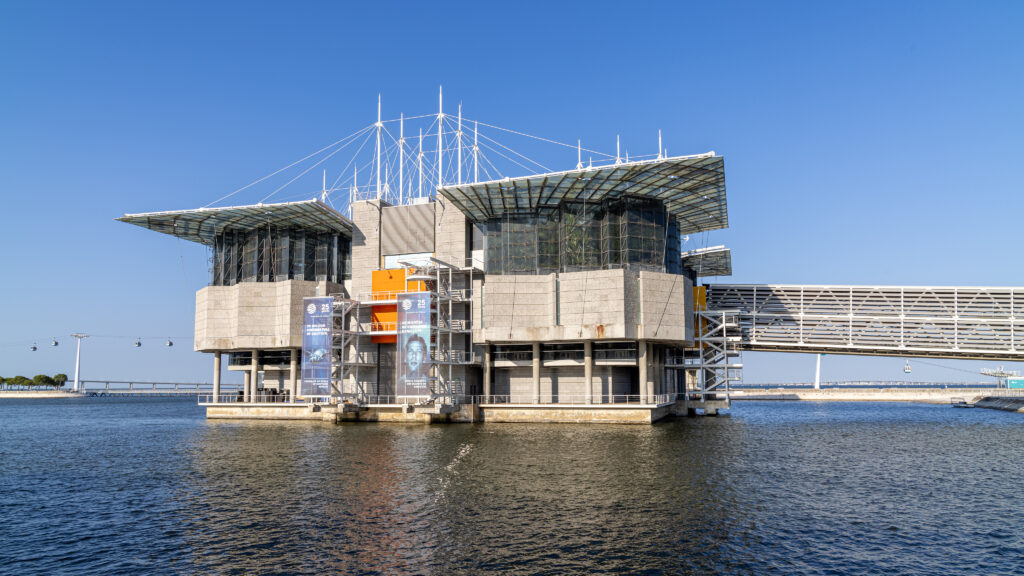
The Oceanário de Lisboa is a wonderful treat for fans like us of fish and ocean life. It’s in the Parque de Nações neighborhood on Lisboa’s Tejo river near the Oriente train and metro stations. The main exhibit is a huge tank that you can observe from many viewing windows. Each viewpoint has its own aquascaping, and the tank is so big, you can’t see across, so it seems bigger than it is. There are some really big rays and sharks, and there are large schools of little fish and medium sized fish at different levels of the tank. Water crashes in at the top like waves, oxygenating the water. At one point, fish food dumped in at the top too and schools of fish got excited as they swam through the clouds of krill.
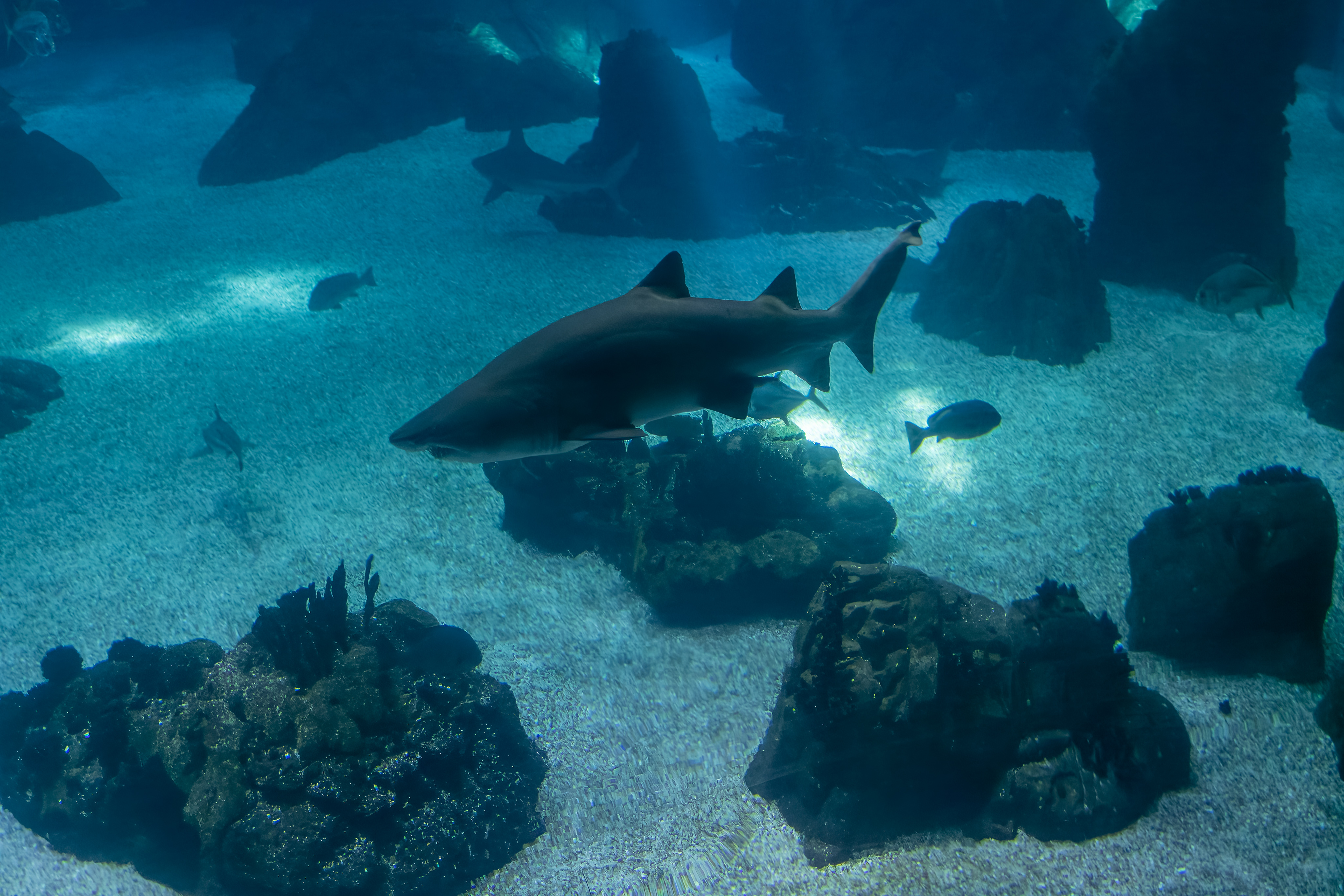
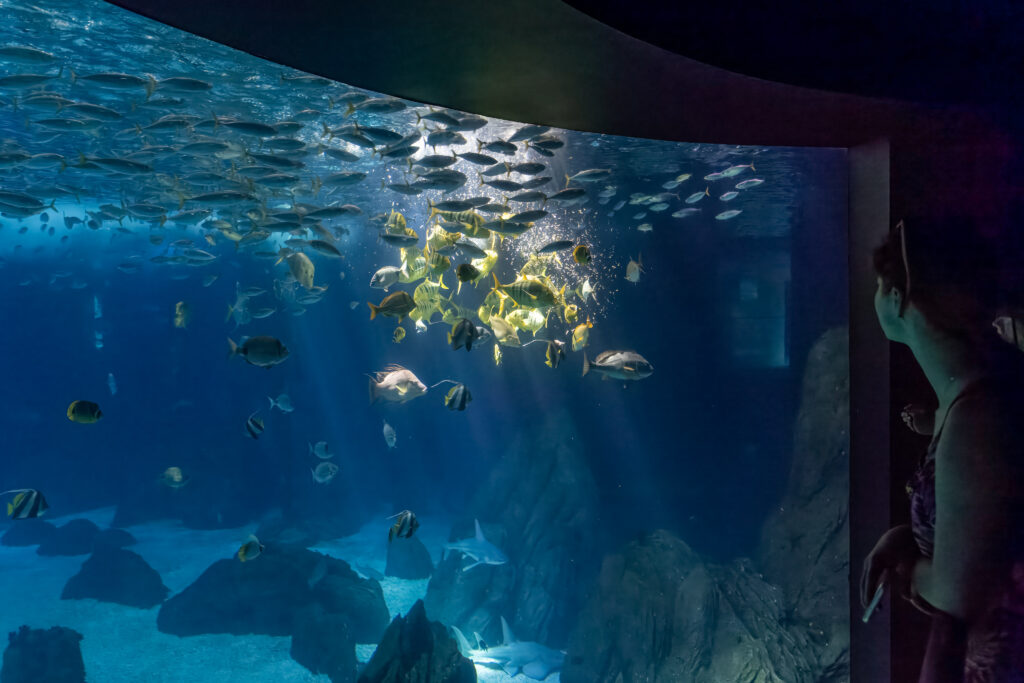
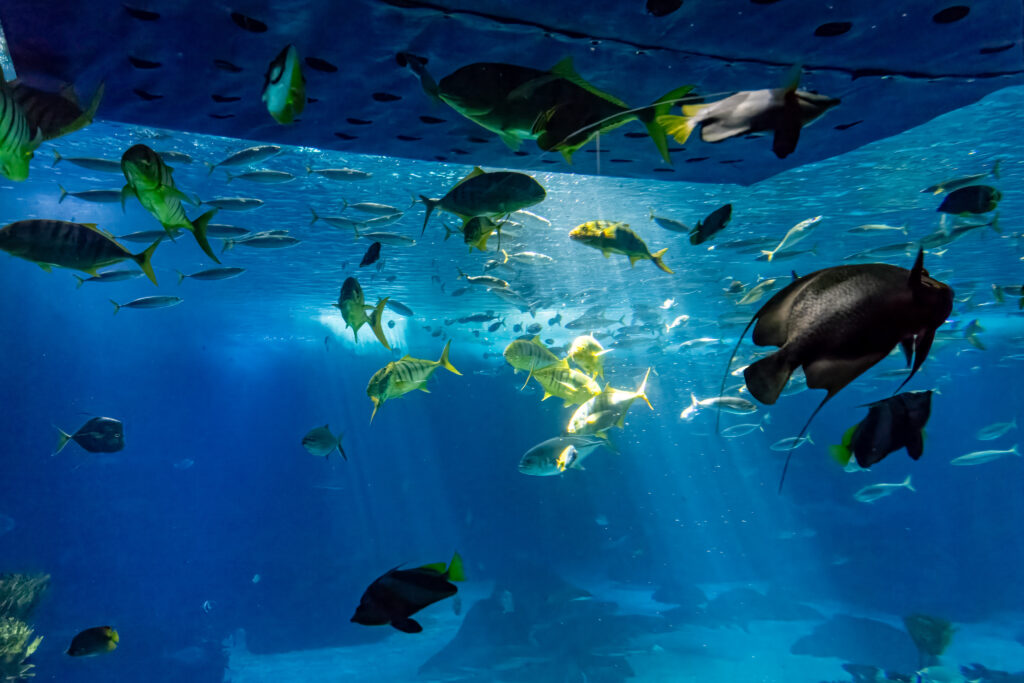
In addition to the big tank, there are four satellite tanks around it with landscaping as well as underwater environments. Each one simulates a different ocean – North Atlantic with puffins, guillemots and razorbills that can actually fly around freely within the exhibit – very cool!; Antartic with Magellanic penguins and Inca terns; Indian Ocean with a dense rainforest; northern Pacific with sea otters.
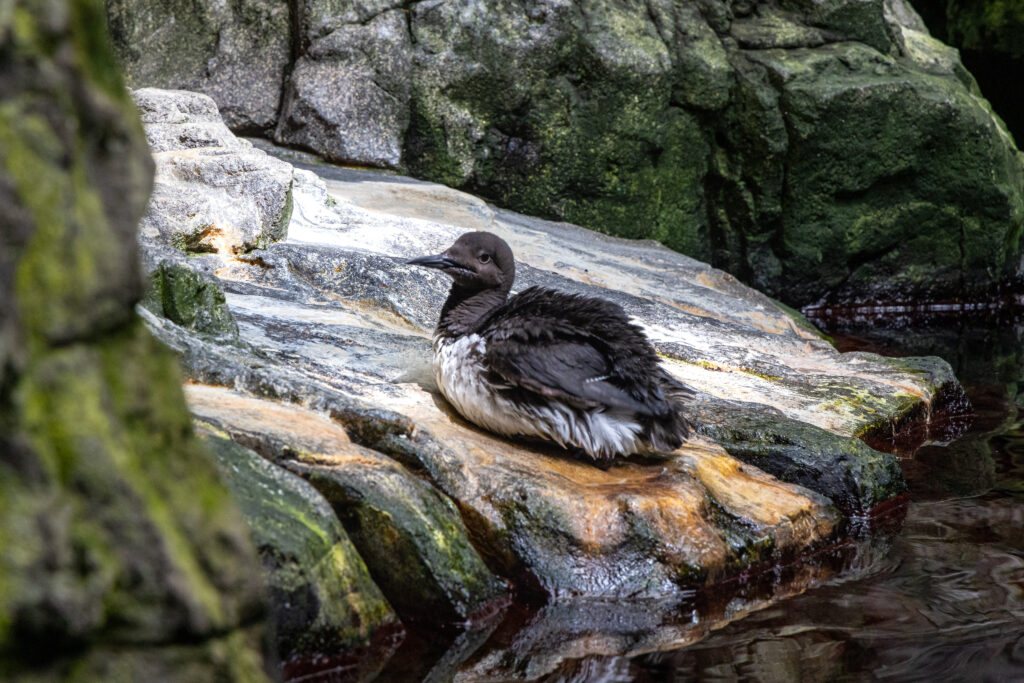
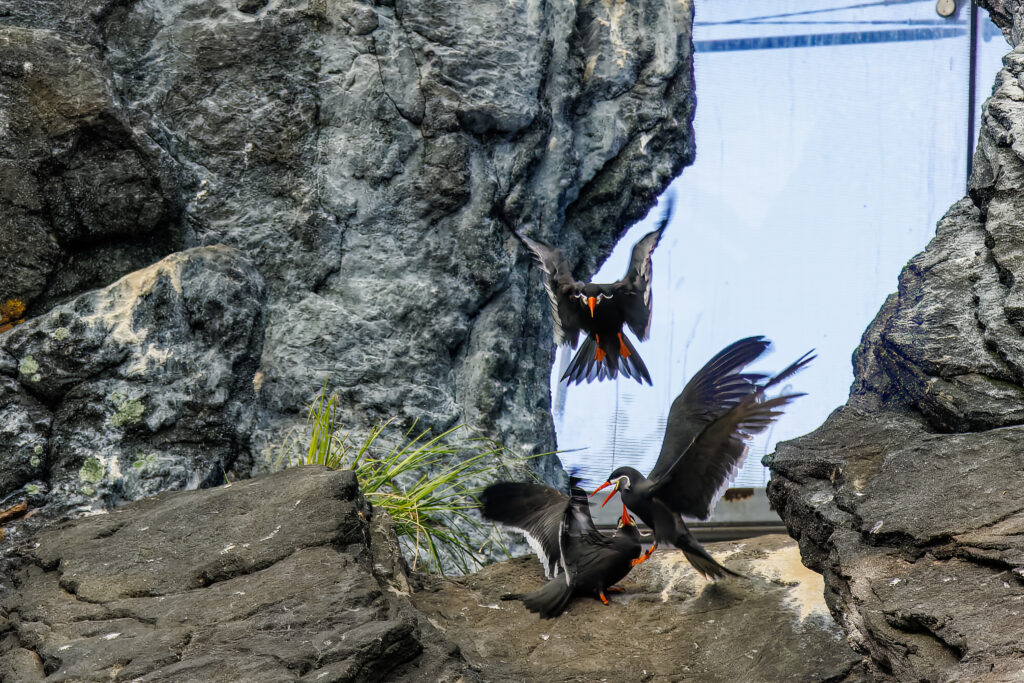
I love the Portuguese name for the puffin – papagaio-do-mar. Papagaio is an ancient word for parrot. The word also makes me think of Papageno, the comic birdcatcher character in Mozart’s opera “The Magic Flute”.
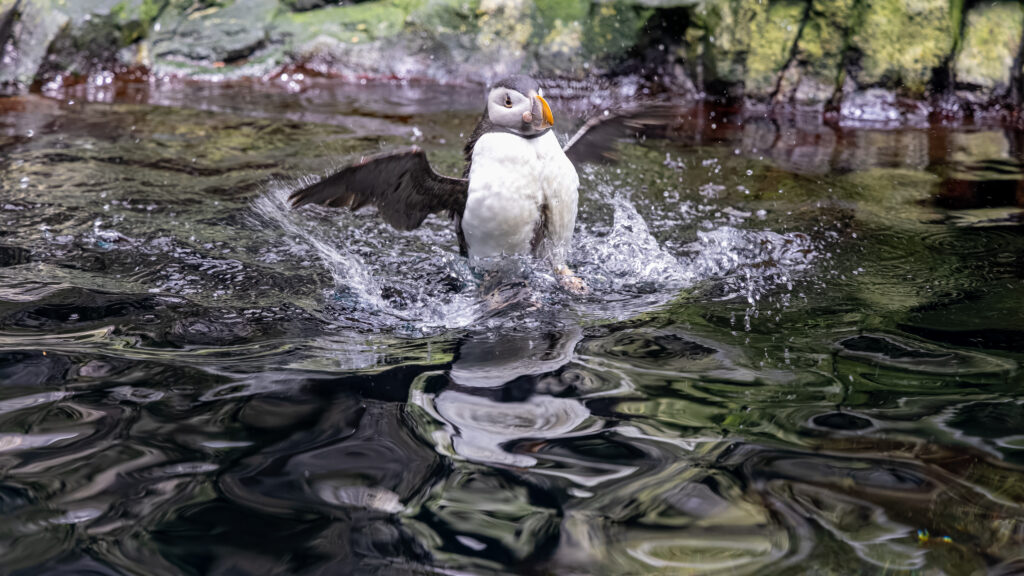
Here’s their website: https://www.oceanario.pt/exposicoes/
There’s a fascinating “temporary” exhibit of a freshwater aquarium titled Florestas Submersas – submerged forests. The tank is 40 meters long, in a U shape. Its artistic presentation of tropical underwater habitat is full of beautiful plants and 40 species of colorful fish. The designer Takashi Amano was an expert in planted aquariums, bringing the concepts of a Japanese garden to the design. It made me nostalgic for our own planted aquarium which we had to dismantle when we left Massachusetts. Some of the fish were species we had too. I wish I knew how they kept their tank so clean and free of algae!
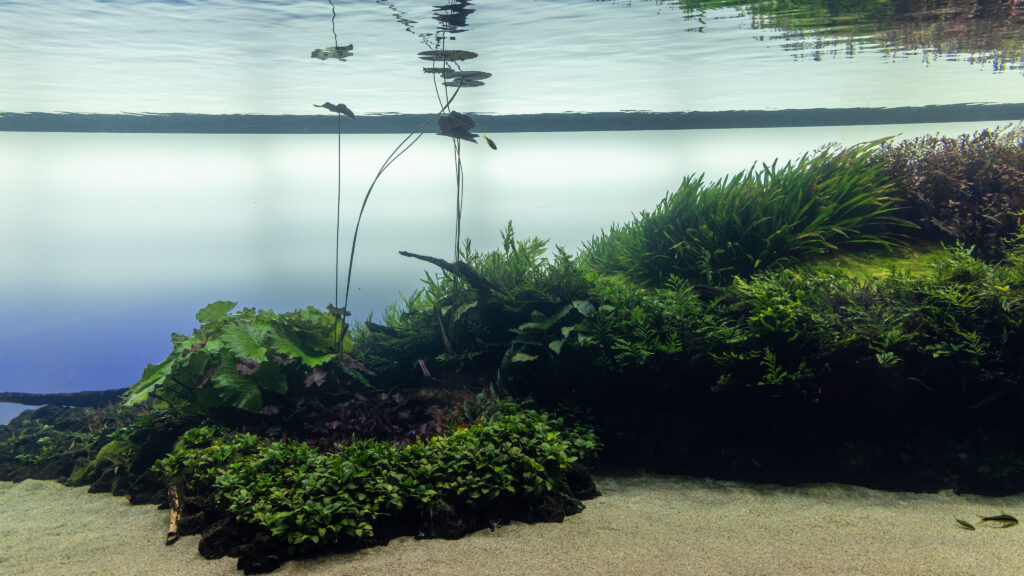
Species Tanks
